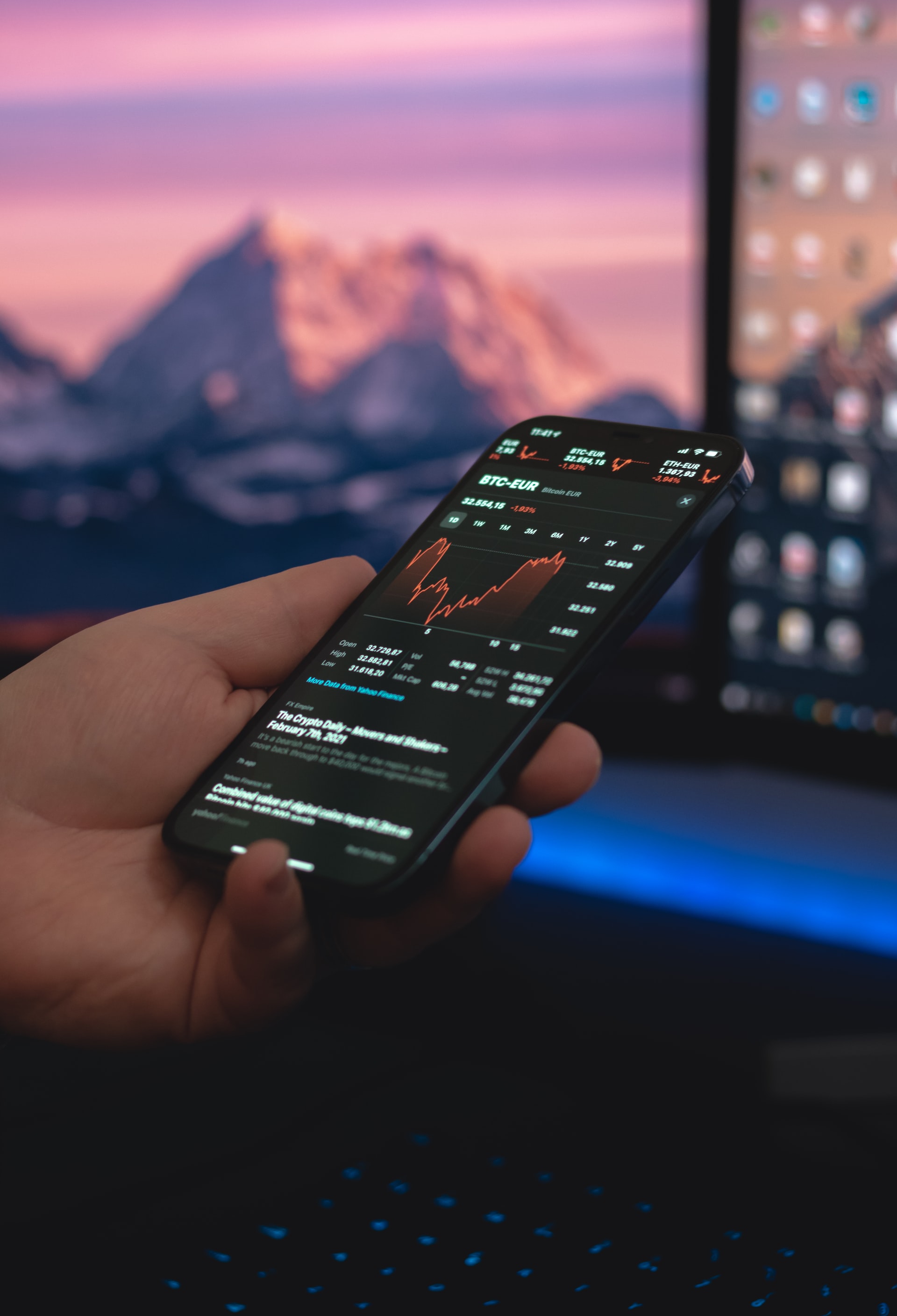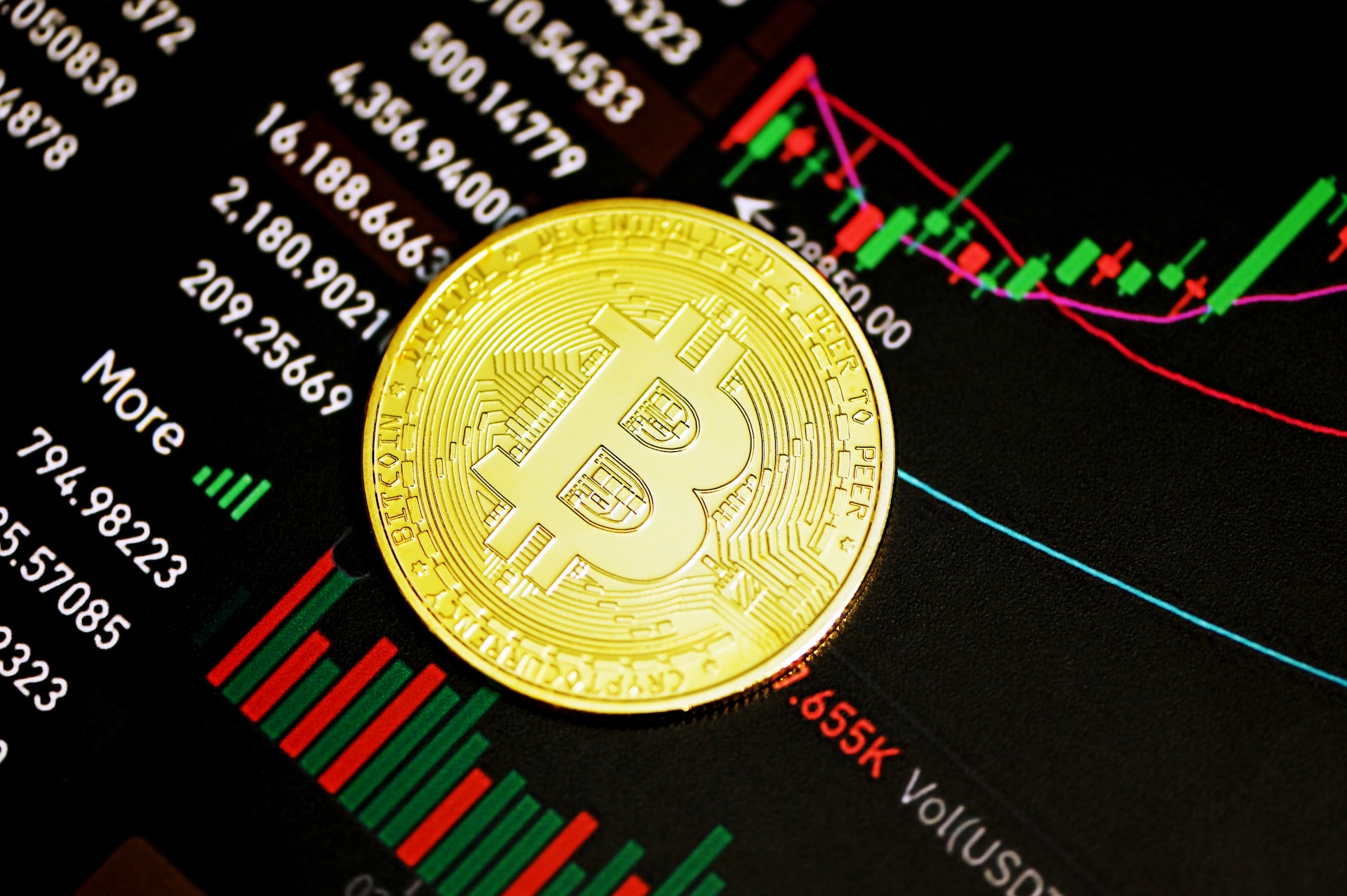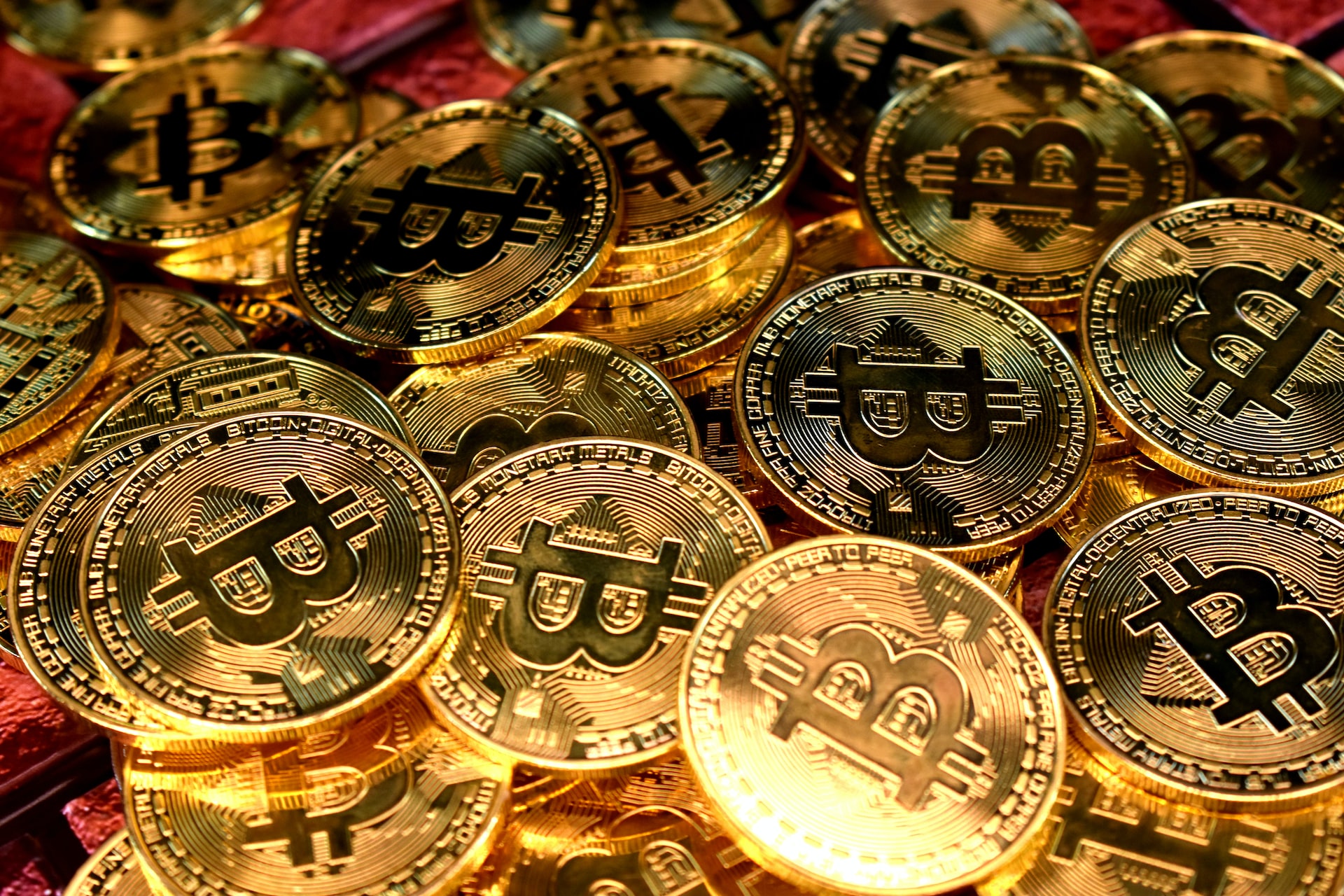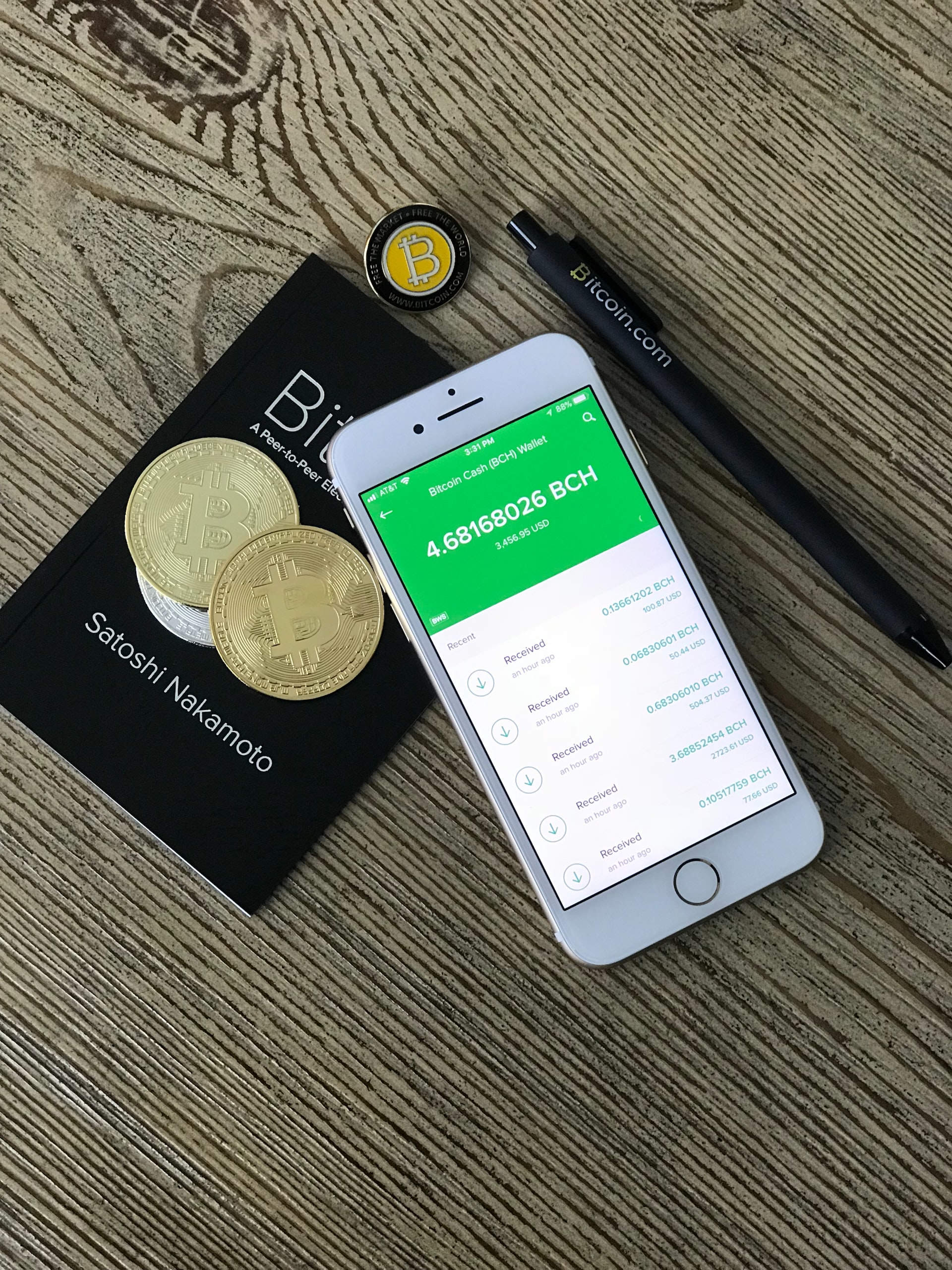Bitcoin As A New Form Of Money - Benefits And Actual Situation
If investors understand the fundamentals and history of Bitcoin, they will have a better understanding of Bitcoin vs money and why is Bitcoin a new form of money and the benefits of this.
Author:Stefano MclaughlinReviewer:Camilo WoodAug 17, 202233 Shares466 Views

Investors would have undoubtedly seen headlines about Bitcoin's meteoric rise.
Bitcoin is more than a passing fad.
It is the currency of the future.
If investors understand the fundamentals and history of Bitcoin, they will have a better understanding of Bitcoin vs money and why is Bitcoin a new form of moneyand the benefits of this.
What Is Bitcoin, And Why Is It So Expensive?
Bitcoin (BTC) is a digital currency that serves as an alternative to central bank-controlled fiat money.
The latter, on the other hand, is valuable because it is issued by a monetary authority and is widely used in a market.
The Bitcoin network is decentralized, and the currency is rarely used in retail transactions.
Bitcoin lacks the support of government authorities as well as a system of intermediary banks to spread its use.
In the Bitcoin network, a decentralized network of independent nodes is in charge of approving consensus-based transactions.
There is no fiat authority, such as a government or other monetary authority, to act as a counterparty to risk and make lenders whole if a transaction goes wrong.
However, the cryptocurrency exhibits some characteristics of a fiat currency system. It is extremely rare and cannot be counterfeited.
The only way to create a counterfeit bitcoin is to perform what is known as a double-spend.
When a user "spends" or transfers the same bitcoin in two or more different settings, a duplicate record is created.
Utility
The size of the Bitcoin network, on the other hand, makes double-spending unlikely.
A 51% attack would be required, in which a group of miners controls more than half of all network power.
This group could dominate the rest of the network to falsify records by controlling a majority of all network power.
However, such an attack on Bitcoin would necessitate a massive amount of effort, money, and computing power, making the possibility extremely unlikely.
However, Bitcoin frequently fails the utility test because it is rarely used for retail transactions.
The scarcity of Bitcoin is its primary source of value.
The case for Bitcoin's value is similar to that of gold, a commodity with characteristics similar to the cryptocurrency.
The cryptocurrency is limited to 21 million units.
Bitcoin is far more divisible than fiat money.
One bitcoin can be divided into up to eight decimal places using satoshis as the constituent unit.
For everyday use, most fiat currencies can only be divided to two decimal places.
If the price of Bitcoin rises over time, users with a fraction of a bitcoin will still be able to transact with the cryptocurrency.
The creation of side channels, such as the Lightning Network, may increase the value of the Bitcoin economy.
Scarcity
The value of Bitcoin is determined by scarcity. Demand for cryptocurrency has increased as supply has decreased.
Investors are clamoring for a piece of the ever-expanding profit pie generated by trading its limited supply.
Bitcoin, like gold, has limited utility, with primarily industrial applications.
The underlying technology of Bitcoin, known as blockchain, is being tested and used as a payment system.
One of its most effective applications is in cross-border remittances to increase speed and reduce costs.
Some countries, such as El Salvador, believe that Bitcoin's technology will advance sufficiently to make it a viable medium for daily transactions.
Production Margin At A Cost.
Another school of thought holds that Bitcoin has intrinsic value based on the marginal cost of producing one bitcoin.
Mining for bitcoins consumes a lot of electricity, which has a real cost for miners.
According to economic theory, the selling price of a product in a competitive market among producers all producing the same product will tend towards its marginal cost of production.
According to this empirical evidence, the price of a bitcoin tends to follow the cost of production.
Monetarists attempt to value bitcoin in the same way that they value money, based on the supply of money, its velocity, and the value of goods produced in an economy.
The most straightforward approach would be to examine the current global value of all mediums of exchange and stores of value comparable to Bitcoin and then calculate the value of Bitcoin's projected percentage.
The most common medium of exchange is government-backed money, and we will focus solely on that in our model.
The Slow Demise Of State Funds
From shells and limestone rocks to pelts and livestock, humans have used various items as value exchange/barter mechanisms since the beginning of time.
Throughout history, commodities such as silver and gold have served as reliable stores of value.
Fiat currency, or government-issued money that isn't backed by a commodity like gold, has recently become the most widely accepted form of money in modern economies.
Unfortunately, our trust in fiat (government) paper money is rapidly eroding.
Governments have been printing money to fund spending and ballooning debt to stimulate their economies during crises, a process that has accelerated during the COVID-19 pandemic.
All state money is losing value in relation to gold, implying that purchasing power is eroding.
The loss of purchasing power can have a significant impact on investment returns and retirement plans.
For many decades, the US dollar has served as the world's reserve currency and a store of value.
However, with growing concern about the size of the US debt today, the USD faces difficulties in remaining a store of value in the future.
The good news is that money is adapting, and people are working to create a future for money that includes more modern stores of value.
Money is entering a new era, one befitting of the digital age. Bitcoin is the primary vehicle for this new era.
Bitcoin's Evolution
One of the myths about Bitcoin is that it is brand new and thus volatile. However, Bitcoin was not created overnight.
It took 40 years of trial and error and many advances in computer science to create a system that can be used as a global store of wealth and payment network that is inextricably linked.
Over many decades, several innovators built on each other's knowledge and work to underpin the Bitcoin network today.
elliptic-curve cryptography in the 1980s;
Nick Szabo's work on decentralized protocols and smart contracts in the late 1990s;
Adam Back's Hashcash code design, which served as the foundation for the proof of work algorithm in the late 1990s;
All of these were foundational to Satoshi Nakamoto's 2008 whitepaper, "Bitcoin-a peer-to-peer electronic cash system," which is changing money as we know it.
Money Vs. Bitcoin
Bitcoin is arguably the most divisible, portable, and long-lasting store of value ever devised.
The diagram below depicts the advantages of Bitcoin versus money and how it is shaping up to be the future of money.
The main selling point of bitcoin is that it is decentralized: anyone in the world with an internet connection can use the system and know that their wealth and transactions are being secured by the world's largest computer network.
Today's financial system relies on a central party to mediate our financial transactions.
The Bitcoin mining algorithm, on the other hand, ensures that a network of computers that don't know each other will interact in a trustworthy and reliable manner.
It decentralizes control, removing layers of overhead and inefficient handling.
Essentially, Bitcoin possesses all of the characteristics of money and improves on them.
According to Winklevoss Capital, Bitcoin is famous for being "better at being gold than gold
When it comes to new products and technology adoption, a product that is superior, 10x better than its closest substitute, will outperform its competitors.
Bitcoin's Growing Popularity
Bitcoin's powerful advantages are beginning to be recognized.
Bitcoin is becoming more popular.
Its performance is being reported on the nightly news alongside traditional stock markets.
Dow Jones will publish a cryptocurrency index in 2021. Square Payments is one of the top three companies with bitcoin on their balance sheet, and Paypal recently opened up Bitcoin to 330 million customers.
With well-known brands adopting Bitcoin, investment is only expected to rise, especially as central banks print more money.
The Bitcoin conversation will change dramatically in the coming years, with large institutional investors now viewing it as a mature store of wealth.
What Are The Advantages Of Bitcoin Adoption?
Bitcoin Is A Digital Currency That Is Decentralized.
People can exchange value without the use of intermediaries with Bitcoin, giving them greater control over their funds and lower fees.
It is faster, less expensive, more secure, and unchangeable.
Banks control cash, whereas bitcoin has owners.
Online Shopping Is Simple
As previously stated, Bitcoin can be used to facilitate online shopping.
It's similar to an e-wallet that can be built using blockchain technology to store, track, and spend digital money.
Bitcoin is less volatile than cash because it has global acceptance and is less volatile than cash or local currency.
This feature makes it easier to conduct transactions across borders and online.
The fact that there is no real way to keep track of conventional currency means that the underlying technology of bitcoin, blockchain, is what will make or break it.
A distributed network of thousands of computers uses cryptographic techniques to create a permanent, public record of every single Bitcoin transaction that has ever occurred.
This record will be extremely useful for a variety of purposes other than tracking payments.
Excellent Investment Instrument
Bitcoin can be used without the need for a conversion anywhere in the world.
It is regarded as equivalent to gold and combines the best of cash and gold while offering an open market and no restrictions imposed by banks or governments.
Bitcoin is peer-to-peer and open, yet secure and nearly frictionless. Bitcoin allows users to exchange value over the internet without the use of an intermediary and gives them access to their balance via a password known as a private key.
So it's private, secure, and open all at the same time.
Duplication Is Not Possible
Unlike cash, there is no way to duplicate bitcoin.
This Is A Great Way To Keep Records For Tax Purposes
When a bitcoin is transferred, its ownership is also transferred.
This means that two people cannot transact on the same value, which helps keep records clean and simple, especially for tax purposes.
"International Digital Money"
Bitcoin and cryptocurrency have no boundaries.
There are no exchange values or third-party interventions.
Bitcoin enables cross-border transactions by maintaining a ledger on the backend.
What Do Great Companies Have To Say?
"Bitcoin clearly possesses a lot of good money qualities, combining gold's scarcity and durability with fiat's ease of use, storage, and transportability." - Fidelity
"Fidelity," a global financial services provider, believes BTC possesses all of the characteristics of a sound form of money because it is not managed by an organization and does not pay dividends or have cash flows.
Bitcoin's scarcity and decentralized nature only add to its qualities as a perfect monetary tool.
People Also Ask
Can Bitcoins Replace Money?
Debit cards and electronic transfers are gradually replacing physical money, resulting in a system in which governments, banks, businesses, and individuals transfer funds by having a third party change numbers on the electronic equivalent of a ledger.
Is Bitcoin Actually Money?
Bitcoin is a decentralized digital currency that can be bought, sold, and exchanged without the use of an intermediary such as a bank.
Satoshi Nakamoto, the creator of Bitcoin, originally described the need for "an electronic payment system based on cryptographic proof rather than trust."
What Is The New Type Of Money?
The Bahamas will issue a new digital currency called "sand dollars" in October 2020.
The country's central bank issues these digital tokens, which have the same legal status as their traditional money, paper notes and coins.
The sand dollar is cash; it simply lacks a physical form.

Bitcoin - a new type of digital currency | Zihang Xia | TEDxYouth@HFLSCAL
Conclusion
Satoshi's intention when creating Bitcoin was for it to be e-money and possibly replace fiat currency.
Previously, investors and skeptics alike had largely spoken against the coin, but with leading financial institutions such as Fidelity considering it a superior form of money, it is a sign of the decade-old asset's level of growth.
Already, mainstream adoption of BTC has increased significantly in the last two years, owing to companies such as Microstrategy's continued purchases of the asset and El Salvador's adoption of it as legal tender despite the international community's opposition.
But we now live in a world where we can soon see Bitcoin as a new form of money.

Stefano Mclaughlin
Author

Camilo Wood
Reviewer
Latest Articles
Popular Articles


